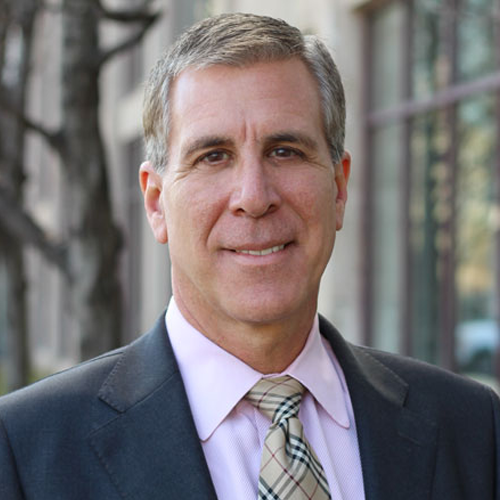HOW CAN WE HELP YOU? Call 1-800-TRY-CHOP
In This Section
Invite to Innovation: Penn Health-Tech Bridges Gaps in Medical Device Ecosystem
 How do you turn an idea into an invention, a discovery into a device, or a project into a product that will impact how we care for children and drive innovation? Whether it’s finding funding, partnering with the right team members, or accessing the most effective resources, researchers and entrepreneurs face many barriers before they’re able to bring an idea to the bedside. With the launch of the new Center for Health, Devices, and Technology (Penn Health-Tech), faculty members at Children’s Hospital of Philadelphia now have the opportunity to access a main ingredient that helps to break through many of those barriers: connections.
How do you turn an idea into an invention, a discovery into a device, or a project into a product that will impact how we care for children and drive innovation? Whether it’s finding funding, partnering with the right team members, or accessing the most effective resources, researchers and entrepreneurs face many barriers before they’re able to bring an idea to the bedside. With the launch of the new Center for Health, Devices, and Technology (Penn Health-Tech), faculty members at Children’s Hospital of Philadelphia now have the opportunity to access a main ingredient that helps to break through many of those barriers: connections.
Led by a trio of experts from Penn Engineering, Medicine, and Business, Penn Health-Tech describes itself as a community of “connectors” seeking to unite researchers from CHOP with Penn Medicine and Engineering, leveraging its rich ecosystem of resources and leadership. The ultimate goal is to identify novel innovations or devices and move them through the pipeline of development so that they can be put to use in healthcare settings. Penn Health-Tech’s executive committee includes our own Flaura Winston MD, founder of the Center for Injury Research and Prevention (CIRP) and Scientific and Medical Advisor for Innovation at CHOP, who believes that the new Center will act as a “bank of wisdom” for overcoming the common hurdles in developing medical innovations for both pediatric and adult populations.
“We have many creative people at CHOP who understand pediatric pain points that their research and discoveries can solve,” Dr. Winston said. “But they’re having trouble turning it all into opportunities because they don’t have the connections. There are numerous barriers along the way that people don’t know how to navigate. We’re trying to design Penn Health-Tech to dramatically reduce the barriers to going from discovery to product.”
 According to Mark Turco, MD, chief innovation officer and corporate outreach officer for the Penn Center for Innovation and the acting executive director of Penn Health-Tech, the Center will provide support through partnership of resources, expertise, and financial awards. Selected programs will have assigned project managers who will drive the concepts from inception to bedside and allow the CHOP and Penn-based communities to share clinical, research, and engineering talents to accelerate translation. The power of collaboration is key.
According to Mark Turco, MD, chief innovation officer and corporate outreach officer for the Penn Center for Innovation and the acting executive director of Penn Health-Tech, the Center will provide support through partnership of resources, expertise, and financial awards. Selected programs will have assigned project managers who will drive the concepts from inception to bedside and allow the CHOP and Penn-based communities to share clinical, research, and engineering talents to accelerate translation. The power of collaboration is key.
“We are at a time in academic medicine and healthcare when there needs to be a lot of interaction to allow for the translation of ideas and technology, and also to move those ideas through pathways that allow for optimal and most rapid success,” Dr. Turco said. “What Penn Health-Tech hopes to provide to CHOP is the ability for researchers, entrepreneurs, faculty members, and innovators to work collaboratively with the Penn-based community – specifically Penn Engineering and Medicine.”
Penn Health-Tech will hold its first symposium at the Smilow Center for Translational Research Wednesday, Nov. 1, from 8 a.m. to 6 p.m., at which a lineup of speakers will present on topics such as the device development cycle, investment, regulatory principles, and more. The Center’s leaders will also announce the first five award winners for their initial request for proposals – a list that includes two pediatric projects from CHOP.
So how can CHOP researchers and faculty engage with the new Center? One potential way is to submit project ideas when Penn Health-Tech sends out a request for proposals. The Center hopes to provide grant funding for early-based technologies to move through the developmental process.
“Penn Health-Tech will review those project applications, and if it meets criteria, the hope is that Penn Health-Tech is able to help support that project,” Dr. Turco said. “The support may come in seed funding, or it may come in providing resources and expertise to get that technology or device ultimately through to the bedside.”
Dr. Turco adds that another way to interact is to reach out to the Center via its website and request a meeting with its teams. Penn Health-Tech can then meet with faculty innovators or entrepreneurs and speak about opportunities to get involved or resources available to CHOP through the Center. Finally, Penn Health-Tech holds monthly meet-ups, with October’s meet-up (to be held on Oct. 26 from 4 p.m. to 7 p.m.) featuring CHOP clinicians and titled “Unmet Clinical Needs in Pediatrics.” CHOP engineers and clinicians are invited to attend in order to learn more about the invention and development of medical devices.
 Penn Health-Tech’s faculty leadership includes Brian Litt, MD, (left) co-director and a professor of Neurology and Bioengineering at the Perelman School of Medicine, and Insup Lee, PhD, (right) co-director and Cecilia Fitler Moore Professor at Penn Engineering. In addition to CHOP, the Center’s partners include Wharton Entrepreneurship, the Penn Medicine Center for Health Care Innovation and its medical device accelerator the Philadelphia Pediatric Medical Device Consortium, the Penn School of Design, Centers within the Institute for Translational Medicine and Therapeutics, and more.
Penn Health-Tech’s faculty leadership includes Brian Litt, MD, (left) co-director and a professor of Neurology and Bioengineering at the Perelman School of Medicine, and Insup Lee, PhD, (right) co-director and Cecilia Fitler Moore Professor at Penn Engineering. In addition to CHOP, the Center’s partners include Wharton Entrepreneurship, the Penn Medicine Center for Health Care Innovation and its medical device accelerator the Philadelphia Pediatric Medical Device Consortium, the Penn School of Design, Centers within the Institute for Translational Medicine and Therapeutics, and more.
You can register for the Penn Health-Tech symposium here and find out about other upcoming events on the Center's website.